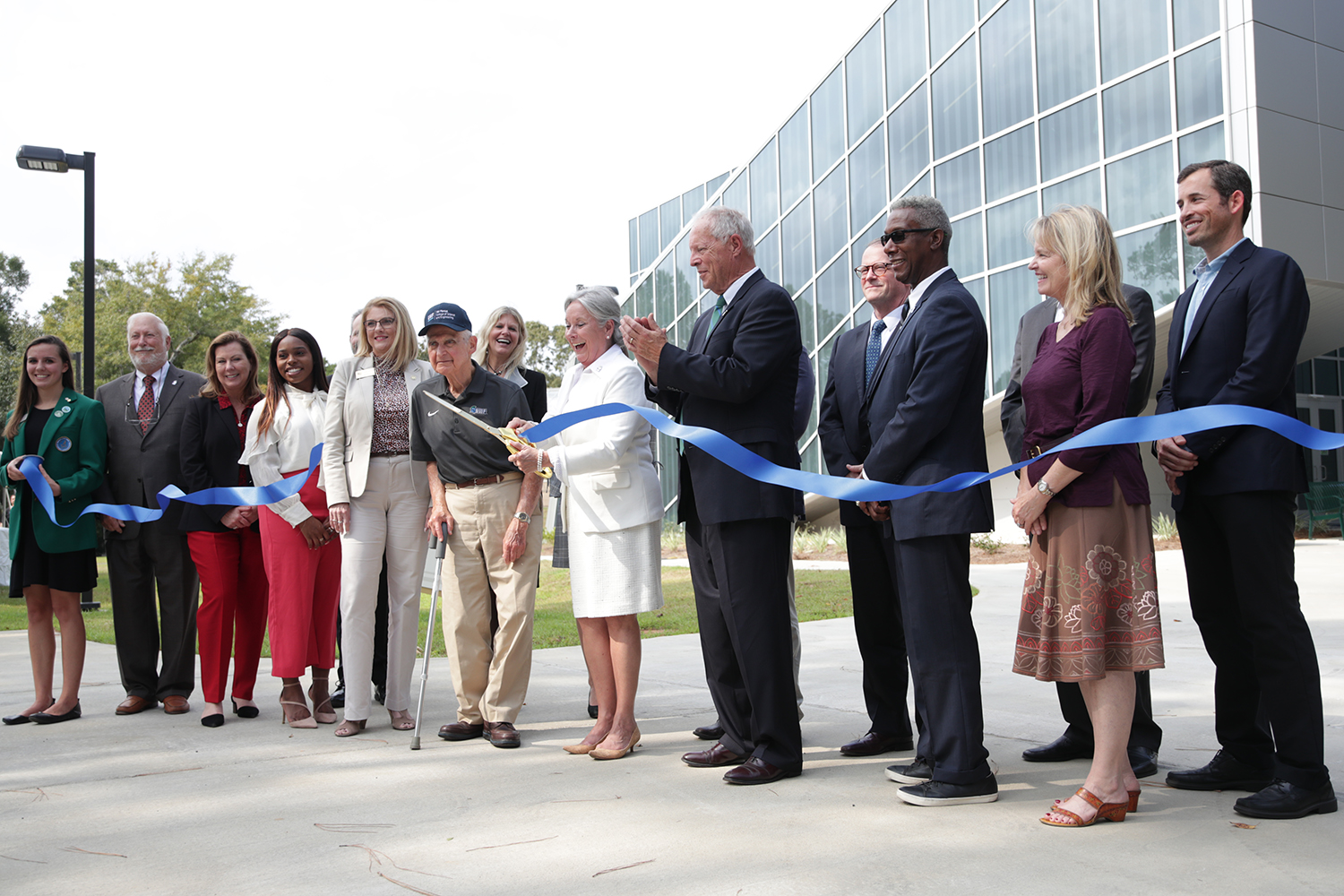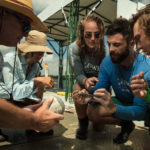UWF celebrates opening of state-of-the-art Laboratory Sciences Annex
The University of West Florida Hal Marcus College of Science and Engineering celebrated the grand opening of the Laboratory Sciences Annex, a state-of-the-art facility that provides additional space for wet teaching labs and offices for faculty and staff.

“As UWF grows and improves, we are grateful to add facilities that match the caliber of our students and faculty,” said UWF President Martha D. Saunders. “The Laboratory Sciences Annex is no exception, with amenities that aid us in graduating the best of the best in STEM-related fields. I would like to thank the Florida State Legislature, especially our local delegation, for their hard work in securing the funding.”
Funded by the Florida State Legislature, the $26.26 million, 52,790 square-foot facility was designed by local architecture firm, Caldwell Associates, with Perkins+Will, a global firm with a specialty in higher education science and technology, and managed by Greenhut Construction Company, Inc. of Pensacola. The annex houses 12 new teaching facilities for the University’s growing biology and chemistry programs and was designed with unfinished “shell” space for potential expansion. These labs along with the new equipment will provide hands-on educational experiences for students.
As of the Fall 2019 semester, approximately 24% of UWF students have declared a major in the Hal Marcus College of Science and Engineering. Nearly 100% of first time in college students in a Hal Marcus College of Science and Engineering major will find themselves in a lab in the new building.
“This new space is nothing short of impressive,” said Dr. Jaromy Kuhl, dean of the Hal Marcus College of Science and Engineering. “Students are excited knowing they will benefit from learning with new equipment in an environment specifically designed for their studies.”
The facility features new equipment and room for future enhancements for the biology and chemistry departments. One biology lab contains a Biosafety cabinet, an enclosed, ventilated laboratory workspace for students to work safely with materials contaminated or potentially contaminated with pathogens.
“This will allow us to expand the types of experiments we can have students perform,” said Dr. Peter Cavnar, assistant professor and chair of the Department of Biology. “Our goal is to give every biology undergraduate student research experience. The new annex allows us to expand and redevelop that experience for our students.”
MeasureNet stations, located in the annex, will provide students with high-quality data collection technology for their general, analytical and instrumental chemistry lab courses. The stations are equipped with state-of-the-art probes, providing the opportunity to work with diverse samples and experimental techniques, not previously available.
Dr. Karen Molek, MARC principle investigator/scholars program director and chair of the Department of Chemistry, said the additional space will allow her department to serve more students and cutting-edge technology will better prepare them for labs and workforce needs.
“The space provided in the annex impacts every student at UWF who enrolls in a chemistry or biology lab and is critical to their success at UWF and beyond,” Molek said. “The additional space increases the availability of lab courses for students thereby helping students graduate in four years. It provides an opportunity for us to create space specifically focused on equipping students to succeed through workshops, coaching, tutoring and mentoring. The teaching space in the annex provides cutting edge technology and instrumentation for teaching and undergraduate research. It also frees up space in other buildings that will be used to engage more undergraduate research students.”
For more information about the UWF Hal Marcus College of Science and Engineering, visit uwf.edu/hmcse.


